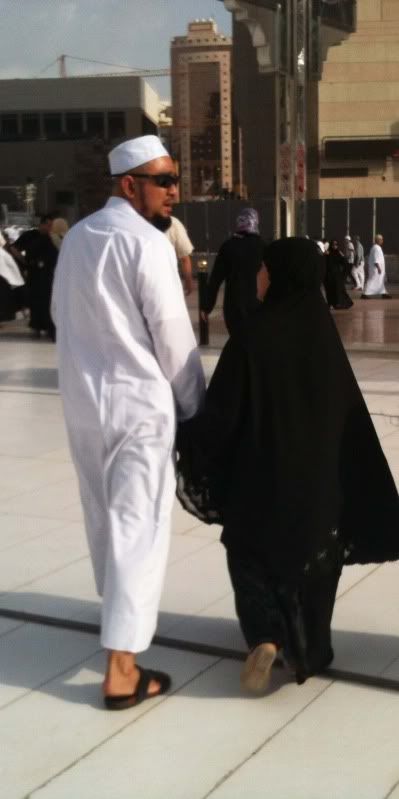I was scrubbing the kitchen top the other day and I was thinking to myself, that since I am made to leave this place and they are going to demolish this, then why bother scrubbing it properly. Sufficient that I just wipe a bit so as not to live in grease of the little time I have left. Do i need to even bother water the plants when it will wither even before they demolish the place. Or bother about the ants nest which are beginning to take place. Or bother anything about maintenance of the house.
But then I remembered this story. It is quite famous. It came in a few different versions. The one that I know is the main character is a carpenter. But there are other version that he is a boat maker or something to that effect. The one that the late Yasmin Ahmad coined for a petronas ad took the latter version.
This is Yasmin Ahmad's work.
Anyway, back to my main lamenting. Even though it was not me who wanted to leave the house but rather I was told to evacuate, the lesson remains, that I should be treating things the way that it should be treated until the end and the best i can.
This is ihsaan. Doing things in perfection.
Before I was practising, I have always thought that Islam encourages only Zuhood and not perfection which probably explain why many "practising" Muslims are satisfied with mediocre results. Rather, Islam demands ihsaan mostly in worship and also in our daily work and relation with others. Allah has mercy on those who are ihsaan.
This knowledge made me, how shall I say it, bersemangat! To strive my very best in what I do. the best I can. (can't say the same about my arabic lessons though. :( ) May Alah help me. For a bit more reading on how to obtain Allah's mercy on my other blog HERE.
And there is this hadith, Prophet Muhammad sallahu alaihi wasalam said,
A good read HERE insya Allah.
And me moving is not even the end of the world.
May Allah have mercy on me and all of us.
But then I remembered this story. It is quite famous. It came in a few different versions. The one that I know is the main character is a carpenter. But there are other version that he is a boat maker or something to that effect. The one that the late Yasmin Ahmad coined for a petronas ad took the latter version.
Anyway, there was a carpenter who worked for another man. After sometime he got tired working for him. Perhaps if he retires and become his own boss, he could do much better. Or perhaps he could just retire and enjoy his time with his family.
Of course quitting totally would mean loss of income. But what the heck, he is tired working for other people! It is time to be liberated. So he announced his intention of retiring to his boss.
The owner was sad because he was a good employee. He then pleaded that the carpenter to do just one more house for him. The carpenter, half heatedly agreed. Irked because his heart was full of wanting to quit and felt that his boss was just trying to make things difficult for him.
So, reluctantly he build the house. Not taking much care of the finishing, materials nor workmanship. The result was a shabby house. Not his usual work. Thus he ended his working life with his employer with shabby work unlike his previous usual produce.
Upon completing it, the employer inspected the place and handed the key to the man and said, "This is your house, from us."
Thus the carpenter stared at his own work and regretted on how he chose to end.
This is Yasmin Ahmad's work.
Anyway, back to my main lamenting. Even though it was not me who wanted to leave the house but rather I was told to evacuate, the lesson remains, that I should be treating things the way that it should be treated until the end and the best i can.
This is ihsaan. Doing things in perfection.
Before I was practising, I have always thought that Islam encourages only Zuhood and not perfection which probably explain why many "practising" Muslims are satisfied with mediocre results. Rather, Islam demands ihsaan mostly in worship and also in our daily work and relation with others. Allah has mercy on those who are ihsaan.
Indeed the Mercy of Allah is near to those who do utmost good. [Al Aaraf 7:156]
This knowledge made me, how shall I say it, bersemangat! To strive my very best in what I do. the best I can. (can't say the same about my arabic lessons though. :( ) May Alah help me. For a bit more reading on how to obtain Allah's mercy on my other blog HERE.
And there is this hadith, Prophet Muhammad sallahu alaihi wasalam said,
"If the Hour starts to happen and in the hand of one of you is a palm shoot or seedling; then if he is able to plant it before the Hour happens, then let him plant it." As-Silsilah as-Saheehah
A good read HERE insya Allah.
And me moving is not even the end of the world.
May Allah have mercy on me and all of us.

